As a health- and nutrition-conscious mother-to-be, you’ve probably heard the buzz about magnesium and pregnancy.
Specifically, pregnant women and people rave about magnesium supplements for things like leg cramps, stress, sleep, and muscle soreness, and some even claim it helped them avoid certain pregnancy complications.
But does it actually work, and is it safe to take magnesium supplements during pregnancy?
In this quick guide, we’ll explore everything you need to know about magnesium and pregnancy, including why supplementation has become so popular, food sources, supplementation safety, the best forms of magnesium for pregnancy, how much you need, and its benefits.
Note: before taking any supplements, be sure to talk to your doctor or healthcare practitioner.
Why Magnesium Supplementation Has Become So Popular
Visit any integrative health blog or social media influencer’s channels, and you’ll likely find multiple posts about the benefits of magnesium.
This humble mineral, fondly referred to as “the anti-stress nutrient,” has become legendary for reducing stress, promoting healthy sleep, easing muscle aches, and helping with pregnancy-related issues like leg cramps.
Some people even credit magnesium supplements with breaking their chocolate and sugar cravings.
Magnesium supplements are also widely available and relatively inexpensive, making it one of the more popular mineral supplements.
An Overview of Magnesium: What It Is, What It Does, and Why It Matters During Pregnancy
Magnesium is an essential mineral (meaning our bodies cannot produce it) that’s involved in over 300 cellular reactions.
Unfortunately, research shows that up to 68% of Americans do not get enough magnesium in their diets.
Additionally, research has shown magnesium intake is often suboptimal in pregnant women, with one study showing the average daily dietary intake (not including supplements) of magnesium in United States women at 22% less than the RDA or women ages 19 to 50.
Magnesium deficiency or insufficiency may be due to various factors, including a diet devoid of magnesium-rich foods, lack of mineral intake from water, age, use of certain medications like proton pump inhibitors and birth control pills, increased demands for nutrients during pregnancy and lactation, and stress.
Magnesium is involved in various aspects of healthy bodily function, including:
- Bone health
- Brain health
- Cardiovascular function, including blood pressure regulation
- Cellular function
- Digestion
- Energy production
- Eye health
- Glucose metabolism
- Growth and development
- Gut health
- Hormonal function
- Joint health
- Kidney function
- Metabolic function
- Mood
- Muscle function, including relaxation and recovery
- Nervous system function
- Sleep
- Stress response
- And more
Studies suggest optimal magnesium levels may also help support critical aspects of a healthy pregnancy and delivery, which we’ll discuss more in subsequent sections.
The key takeaways are that magnesium is essential for nearly all aspects of healthy bodily function, yet most people aren’t getting enough.
Best Food Sources Of Magnesium
A healthy, whole-food diet rich in colorful fruits and vegetables, lean proteins, whole grains, and healthy fats is the best way to ensure nutrient levels are met during all seasons of life, including pregnancy.
The following are the best sources of dietary magnesium:
- Avocados
- Bananas
- Beans, such as black beans
- Blackberries
- Dairy products
- Dark Chocolate
- Leafy green vegetables
- Legumes
- Mangoes
- Nuts
- Papaya
- Plantains
- Potatoes with skins
- Salmon
- Seeds, such as pumpkin seeds
- Tofu
- Whole grains rich in fiber
Unfortunately, the standard Western diet tends to lack enough magnesium-rich foods, which is where supplementation can be helpful.
How Much Magnesium Do You Need During Pregnancy?
As mentioned previously, pregnant women require more magnesium to support a healthy pregnancy and growing fetus.
Although recommendations may vary, research shows supplementation with 345 mg per day is enough to keep magnesium levels stable.
This is consistent with the Recommended Daily Allowances (RDAs) as established by the Institute of Medicine as follows:
|
Age |
Male |
Female |
Pregnancy |
Lactation |
|
Birth to 6 months |
30 mg* |
30 mg* |
|
|
|
7–12 months |
75 mg* |
75 mg* |
|
|
|
1–3 years |
80 mg |
80 mg |
|
|
|
4–8 years |
130 mg |
130 mg |
|
|
|
9–13 years |
240 mg |
240 mg |
|
|
|
14–18 years |
410 mg |
360 mg |
400 mg |
360 mg |
|
19–30 years |
400 mg |
310 mg |
350 mg |
310 mg |
|
31–50 years |
420 mg |
320 mg |
360 mg |
320 mg |
|
51+ years |
420 mg |
320 mg |
|
|
You may require more or less magnesium depending on your diet, lifestyle, state of health, pregnancy risk factors, and what form or delivery system you're taking.
Check with your doctor or healthcare practitioner for individual recommendations.
7 Benefits Of Magnesium During Pregnancy
There is strong evidence to support optimizing magnesium levels during pregnancy through healthy eating and supplementation.
The following are seven benefits of magnesium during pregnancy based on research.
Possible Reduced Risk of Preterm Birth
Possibly, the most compelling reason to get enough magnesium during pregnancy is to reduce your risk of preterm (early) birth.
As noted in a recent meta-analysis, several studies have shown magnesium supplementation of 345 to 500 mg per day found significant decreases in preterm birth.
Part of the reason for this is magnesium also reduces the risk of other pregnancy-related ailments that may induce early labor. We’ll discuss some of those next.
Possible Reduced Risk of Pregnancy-Induced Hypertension
Magnesium has been well-studied for its beneficial effects on blood pressure.
This becomes especially important during pregnancy as hypertension can be dangerous or even fatal to mothers and their babies.
Several studies have shown magnesium can significantly reduce the rates of pregnancy-induced hypertension, making it a cheap, safe, and effective option for healthy blood pressure.
Always talk to your doctor before starting a supplement regimen for high blood pressure.
Magnesium May Help With Leg Cramps During Pregnancy
Pregnancy can cause all manner of strange sensations, but being woken up in the middle of the night by a searing leg cramp is one of the worst!
Many women swear by supplemental magnesium for leg cramps, which makes sense given its role in musculoskeletal health, but does it really work?
Several studies have investigated the potential effects of supplemental magnesium on leg cramps in pregnant and non-pregnant women and people.
However, the results are mixed, with some showing a benefit and others showing equal benefits in the placebo and magnesium groups.
Ultimately, more research is needed, although anecdotal evidence is strong.
Some people find oral magnesium helpful, while others rely on topical magnesium gels or creams.
Potential Risk Reduction of Cerebral Palsy
Although more research is needed, studies have shown supplementing magnesium during pregnancy appears to reduce the risk of cerebral palsy, a group of conditions that causes brain damage before birth, in infants.
For example, a meta-analysis of five studies found magnesium sulfate reduced the risk of cerebral palsy by approximately 32% and significantly improved the rate of gross motor dysfunction.
The exact cause of cerebral palsy/damage to the developing brain can vary but is often unknown.
These studies suggest that optimizing magnesium levels may be protective in some cases, but more research is needed.
Better Sleep
From racing thoughts and midnight hunger pangs to more frequent urination and general discomfort, pregnancy can make sleep challenging.
Plus, it doesn’t help when everyone tells you to “make sure to sleep while you can!”
Fortunately, studies have shown supplemental magnesium can help support healthy sleep by promoting relaxation. It also plays a role in the production of melatonin, your body’s master sleep hormone.
Talk to your prenatal healthcare team about trying a magnesium supplement or eating magnesium-rich foods before bed to help you relax and sleep sounder.
Related Reading: When Is The Best Time To Take Magnesium?
Supports Normal Elimination
Pregnancy can cause changes in digestion, including occasional constipation.
Magnesium is well-known for its beneficial effects on healthy bowel function and elimination.
Plus, magnesium-rich foods such as nuts, seeds, mangoes, whole grains, and leafy greens are a great source of fiber, which helps keep things moving.
If magnesium-rich foods aren’t enough to promote easy bowel movements, talk to your healthcare practitioner about supplemental magnesium.
Potential Reduced Risk Of Preeclampsia
Preeclampsia is a serious condition that typically occurs after 20 weeks of pregnancy and can cause high blood pressure, premature birth, fluid in the lungs, and organ damage.
Approximately 5-8% of women experience preeclampsia, and it can threaten the life of mother and baby.
Unfortunately, the cause of preeclampsia is often a mystery, and treatment options are limited.
Fortunately, it appears supplemental magnesium can help.
Several studies suggest supplemental magnesium can help reduce the risk of preeclampsia and hospitalization during pregnancy.
Other minerals, including calcium and zinc, have also been shown to reduce the risk of preeclampsia, which speaks volumes about the benefits of minerals during pregnancy.
Are Prenatal Vitamins a Good Source of Magnesium?
Unfortunately, most prenatal vitamins are not a good source of magnesium.
Magnesium is included in 66% of prenatal supplements; when included, the median level is 50 mg, which is far below the recommended daily allowance.
Only 5% of prenatal supplements on the market meet or exceed the RDA for pregnant women.
What is The Best Magnesium to Take During Pregnancy?
There are many forms of magnesium supplements available, including:
- Magnesium citrate
- Magnesium glycinate
- Magnesium bis-glycinate
- Magnesium oxide
- Magnesium chloride
- Epsom Salts
Magnesium glycinate or bis-glycinate are popular forms due to their superior absorbability and gentleness on the stomach.
However, magnesium citrate has also been the subject of various studies and is great for occasional constipation.
Talk to your healthcare practitioner for individual recommendations and learn more in: Which Is The Best Kind Of Magnesium For You?
Are There Any Side Effects of Taking Magnesium During Pregnancy?
Magnesium supplements are generally considered safe during pregnancy as long as their amounts are consistent with RDAs.
You cannot get too much magnesium from foods, and excess magnesium is excreted by the kidneys.
Loose stools and diarrhea are the most common side effects of taking too much magnesium. If this happens, reduce the dose or switch to a different form.
Taking magnesium glycinate or bis-glycinate may help prevent this.
Magnesium toxicity is rare but has been reported from ingestion of very high doses of magnesium-containing laxatives and antacids (typically providing more than 5,000 mg/day of magnesium).
Follow your doctor's or healthcare practitioner's advice, and do not exceed the RDA during pregnancy.
Explore Country Life’s Magnesium Supplements
Country Life has pioneered the creation of high-quality magnesium supplements for decades.
All our supplements are made in our Certified Organic manufacturing facility. They are non-GMO, certified gluten-free, and purity tested from raw material to end product.
This ensures a safe supplement for you and your growing baby.
Some of our best-sellers include:
- High-Absorption Magnesium Glycinate with synergistic magnesium glycinate and vitamin D3
- Chelated Magnesium Glycinate is a fully reacted form with an amino acid chelate, offering a highly bioavailable source of magnesium.
- Magnesium Citrate provides 250 mg per capsule and is helpful for occasional constipation.
Talk to your doctor or prenatal team about whether magnesium supplementation is best for you during pregnancy.
Best wishes in your pregnancy journey!
Sources mentioned in this article:
- “The Importance of Magnesium in Clinical Healthcare”. Scientifica (Cairo).
- “Evidence-Based Recommendations for an Optimal Prenatal Supplement for Women in the U.S., Part Two: Minerals”. Nutrients.
- “Magnesium and Stress”. Magnesium in the Central Nervous System.
- “Magnesium and Drugs”. International Journal of Molecular Sciences.
- “How Birth Control Pills Affect Your Nutritional Needs”. Scientific American.
- “Magnesium Fact Sheet for Consumers”. National Institutes of Health Office of Dietary Supplements.
- “Dietary Reference Intakes: Calcium, Phosphorus, Magnesium, Vitamin D and Fluoride”. Washington, DC: National Academy Press, 1997. Institute of Medicine (IOM). Food and Nutrition Board.
- “Magnesium for skeletal muscle cramps”. Cochrane Database Syst Rev.
- “Magnesium sulphate for women at risk of preterm birth for neuroprotection of the fetus”. Cochrane Database Syst. Rev.
- “What causes cerebral palsy?” NIH Eunice Kennedy Shriver National Institute Of Child Health and Human Development.
- “Oral Mg(2+) supplementation reverses age-related neuroendocrine and sleep EEG changes in humans”. Pharmacopsychiatry.
- “Biorhythms and possible central regulation of Magnesium status, phototherapy, darkness therapy and chronopathological forms of Magnesium depletion”. Magnesium Research.
- “Preeclampsia”. Johns Hopkins Medicine.
- “Effect of Magnesium Supplement on Pregnancy Outcomes: A Randomized Control Trial”. Advanced Biomedical Research.




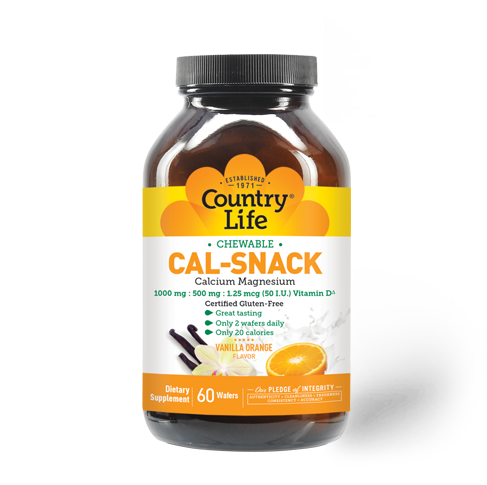

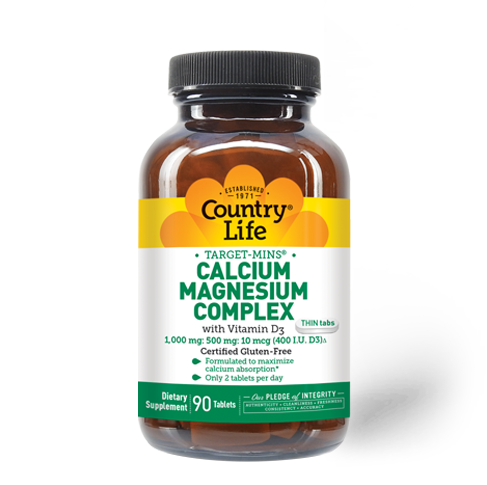
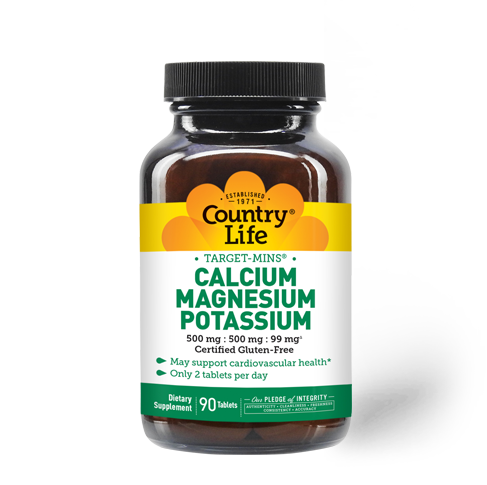
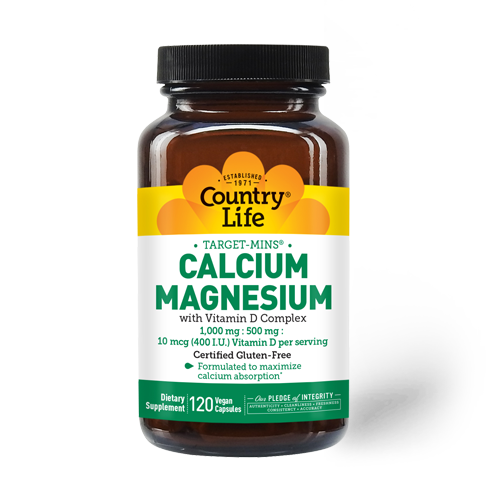
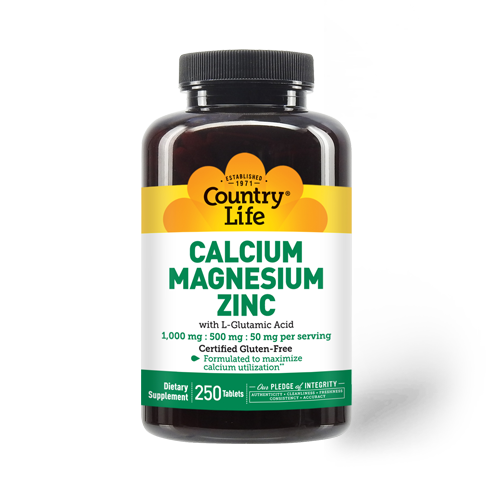
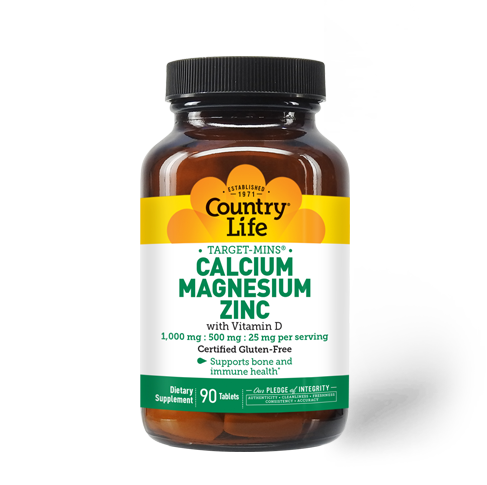










Share:
25+ Natural Energy Boosters: Caffeine & Coffee Alternatives
Magnesium Glycinate vs. Citrate: Which Form Is Best?